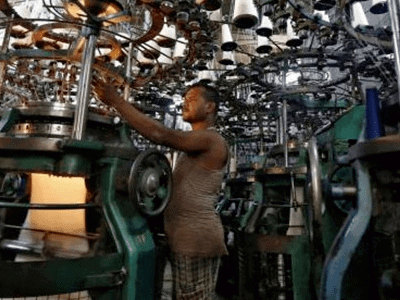The Indian government, through the New Manufacturing Policy, envisions the manufacturing sector to grow about 3% faster than the GDP, so that its contribution to the GDP can increase from 16% to 25% by 2022. The aim is to create 100 million jobs in 15 years. The government recognizes the impact of rising imports of manufactured goods on the domestic manufacturing sector.
Many sub-sectors in the equipment manufacturing sector continue to remain upbeat. For example, the earth moving and construction equipment industry’s revenue potential is pegged at US$ 13 billion, by a CII-IECAL report. The figure is based on estimates of domestic market potential, after-sales revenue and export potential arising out of price pressures in global markets.
Some other sectors are not as upbeat. In the first quarter of 2012-13, the Indian electrical equipment industry has recorded a negative growth of 2.4%, a first in 10 years, according to the Indian Electrical & Electronics Manufacturers’ Association.
While the negative sentiment broadly reflects the impact of exports on the domestic sector, there is no denying the changes ahead. If the macro-level changes envisaged to develop the ecosystem are considered, manufacturing companies can look forward to a growing market that they must gear up to exploit.
Challenges and Opportunities Ahead
The unfolding opportunities require scaling up and building expertise. But that’s only the tip of the iceberg. Manufacturing is seeing major transformations that companies in the sector cannot overlook. New materials are making their presence felt and manufacturers have to be dynamic enough to pick the ones they can leverage best for emerging market needs. The thrust on being green (and sustainable) in manufacturing is gaining ground, and manufacturers have to adopt renewable energy resources and eco-friendly waste management techniques. As the web unleashes easy availability of information on new methods and patents, smaller players will find ways to compete on equal footing with large players through global collaborations. Robotics will have a bigger presence on shop floors.
What does all this mean for manufacturers? New markets, niche segments and stiff competition. Assets and resources will be increasingly more dispersed, and deployed in ever more complex business environments, as the changing market landscape will require a dynamic and agile approach. The need for all constituents of the enterprise to work together smoothly, in a coordinated manner, was never greater.
But companies in India face challenges with their supply chain as well as logistics. Along with growing global customer bases, demand forecasts, increase in SKUs, the business complexities are rising as well. With intense competition from other countries, there is pressure on these companies to stay profitable and competitive.
Not only do these companies face challenges from within the country, there are also external factors at play. The March 2011 Japan earthquake and subsequent tsunami, and the monsoon floods in Thailand in the same year are also stark reminders of the need to strengthen internal systems and develop a holistic view of the industry. The global and India PC industry are still reeling under the impact of these twin disasters, with disrupted supply chains causing a sharp spike in prices and a consequent listless customer sentiment over several quarters.
A robust, yet flexible and adaptable enterprise IT architecture that helps free up business leaders’ time from day-to-day operational issues and focus on ‘core’ business concerns such as speeding up time-to-market and customer service is the need of the hour. Hence, ERP or Enterprise Resource Planning solutions are increasingly seen as a critical tool that can help top management get a holistic view of business operations, and identify triggers that can help them to adapt successfully to changing market requirements.
How ERP Helps Address Business Challenges
ERP helps business leaders and CEOs plug their operational holes and manage their businesses more effectively. It does away with nitty gritties, giving business owners a consolidated view of their business, and leaving them free to focus on core business areas. It enables companies to streamline their processes and workflows, and improve their efficiency. It works as a ‘single source of truth’, offering the insights that the leadership of an organization needs to make effective decisions.
ERP provides the operational backbone for businesses. While most business owners think it is complex, expensive and inflexible, in reality, the right ERP solution can transform the functioning of any business, by letting its staff get more done, faster, and with less effort. It is a reliable, industry-friendly solution that is known to have worked for hundreds of customers before.
Take Spain based company Guascor for instance. Guascor is a leading supplier of diesel and gas engines, providing customized energy solutions across worldwide energy infrastructure markets based upon reciprocating engine power systems technologies. The company wanted to connect its engineering and manufacturing processes, handle complicated designs while meeting production and delivery times, and provide excellent post-sales support. Guascor upgraded from Infor™ ERP Baan to Infor10™ ERP. The company has streamlined the management of made-to-order projects, enabled collaboration with suppliers and customers around the world while managing assets and the supply chain efficiently, without overlooking profitability or neglecting legal requirements. Joseba Iríbar, IT Director, Group Guascor says, “We believe that the functions of Infor10 ERP Enterprise (LN) will bring us closer to excellence. We also are redesigning our management model in order to eliminate valueless processes and simplify the rest as much as we can.”
India: The Growing ERP Market
According to industry estimates, in FY11, the enterprise apps market in India grew to Rs 4,778 crore from Rs 3,901 crore in the previous year. Of the overall enterprise apps market, ERP comprised 34% in FY11, which was Rs 1,625 crore.
Increased IT spending by companies in various sectors is seen as the key reason for this growth. Companies are trying to shift focus to their core businesses, and streamlining processes to leverage higher efficiencies. Organizations of all sizes are now starting to see the benefit in moving to an ERP system. There is growing demand among small and medium sized businesses (SMBs) for ERP solutions, particularly now that cloud and SaaS based models are increasingly available.
Vendors are realising that they must gain a better understanding of the challenges faced by these companies in their present environment, and becoming more innovative and customer-focused. InIndia, ERP vendors have begun coming up with attractive revenue models and offering their products in local languages, enabling them to break through to smaller customers in tier-II markets.
Need of the Hour: Thought Leadership
A notable player to have emerged in recent quarters in the India ERP solution market is Infor, a player which has demonstrated thought leadership in design, implementation and consulting for industry vertical-specific applications and business domain-specific solutions.
Globally, Infor is the third largest provider of enterprise applications and services, helping as many as 70,000 customers across 194 countries improve their business operations, pump up growth and rapidly adapt to changes in market demands. Infor offers industry-specific applications and suites, that are implementable speedily, using technology to deliver a rich user experience. Flexible deployment options allow Infor customers a choice to run their businesses in the cloud, on-premises or both.
Satyen Mamtora, Managing Director, Transformers & Rectifiers India Limited, and a user of Infor10 ERP Enterprise (LN), says, “The availability of real-time data provides greater control of production, inventory, and sales, which significantly improves our strategic and tactical decision making.”
Companies in the equipment manufacturing space operate in a complex and uncertain environment. A lot of this complexity and uncertainty can be overcome with the implementation of the right ERP solution.












